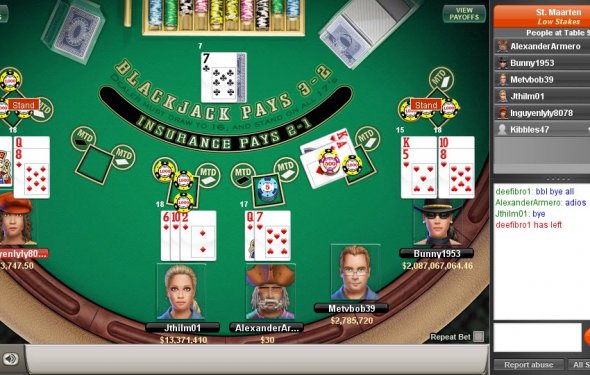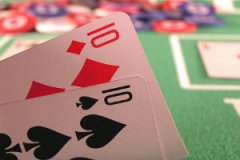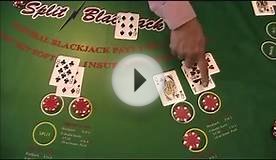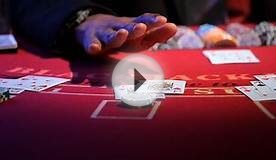Split in Blackjack

 Among my recent emails from players, I have several on the topic of splitting tens. One player mentioned that he seems to win more often than not when splitting tens against a dealer 5 or 6, so he was wondering if the play could be justified. Actually, his basic assertion is correct. You will win more often than not when splitting tens in those situations. But, winning more than 50% of the time is only part of the story.
Among my recent emails from players, I have several on the topic of splitting tens. One player mentioned that he seems to win more often than not when splitting tens against a dealer 5 or 6, so he was wondering if the play could be justified. Actually, his basic assertion is correct. You will win more often than not when splitting tens in those situations. But, winning more than 50% of the time is only part of the story.
When the dealer has a 5 or 6 up, he will bust more than 40% of the time. That’s why basic strategy against those dealer upcards becomes quite a bit more aggressive. You should double 9, 10, and 11. Among soft totals, you should double A2 through A7. So, if you are dealt a pat 20, why not split the pair and get more money on the table while the dealer is weak?
Like all of basic strategy, this decision comes down to which action makes you the most money in the long run. Your single hand of a pat 20 is worth more than double what a single hand starting with a ten is worth.
Splitting Tens costs you money.
Assume we are playing a 6 deck, H17 game and we are dealt a pair of 10s against a dealer 6. Our initial bet is $10.
If we stand with 20, we’ll win our $10 bet 78% of the time. We’ll push with a dealer 20 about 11% of the time, and lose to a dealer 21 another 11% of the time. On average, we’ll win $6.77 by standing.
If we instead split the tens (only once) and put a $10 bet on each hand, what happens? On average, each of these hands is still a winner, but the average win on each hand is only $2.78. Our total expected win on both hands combined is just $5.56, which is more than $1 less than the value if we had just stood on the 20. Despite having twice as much money bet in a favorable situation, we are now expected to win less overall.
If it’s bad to split tens just once, it is of course worse to resplit them. If your strategy is to split tens and resplit up to the usual three times allowed, your total bet will be either $20, $30 or $40. Over all of these possibilities, your expected profit drops further yet to a grand total of only $4.51, more than $2 less than the value of your initial single $10 bet on a pat 20.
What about card counters?
Despite the risk of confusing basic strategy players, I can’t talk about splitting tens without addressing what happens if you count cards. Because card counters have extra information about the remaining cards to be dealt, they are able to identify occasions when splitting tens does become the mathematically correct play. In our example game, the Hi-Lo index number for splitting tens against a dealer 6 is +4. (For indexes for other specific games, see our Advanced Blackjack Strategy cards.) When the true count is at +4 or higher, the value of multiple hands surpasses the value of the pat 20.
- avaliação 9 masks of fire
Blackjack Switch is a casino gambling game invented by Geoff Hall and patented in 2009. It is based on blackjack, but differs in that two hands, rather than one, are dealt to each playing position, and the player is initially allowed to exchange ("switch") the top two cards between hands. Natural blackjacks are paid 1:1 instead of the standard...

